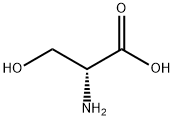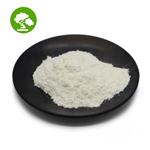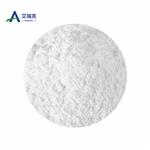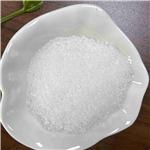Function of D-serine in kidney
Jan 15,2024
General Description
D-serine, an amino acid, exhibits a cellular proliferative effect in the kidney, specifically stimulating the proliferation of proximal tubules. It demonstrates chiral specificity, with d-serine showing superior proliferative effects compared to l-serine. D-serine also has immunological functions and anti-viral properties. In the context of kidney diseases, d-amino acids play a significant role, promoting B cell survival and affecting IgA nephropathy and microbiota. Additionally, d-serine shows protective effects against viral infections. The therapeutic potential of D-serine in kidney diseases lies in its ability to promote cellular proliferation and address immune-related factors contributing to kidney damage. Further research in these areas could lead to novel treatment options for chronic kidney disease patients.
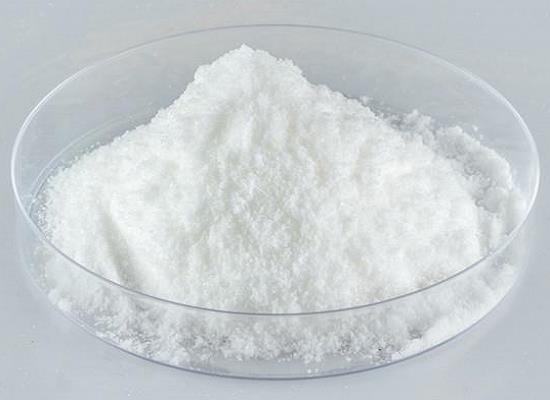
Figure 1. D-Serine
Cellular proliferative effect in kidney
The cellular proliferative effect of d-serine in the kidney refers to the ability of d-serine, an amino acid, to promote cell growth and division in renal cells. After nephrectomy, the removal of a kidney, the blood level of d-serine increases due to reduced clearance. Additionally, nephrectomy leads to the enlargement of the remaining kidney. To study the physiological effects of d-serine, mouse models with unilateral nephrectomy were treated with a low dose of d-serine. This treatment specifically stimulated the proliferation of proximal tubules, where d-serine is reabsorbed. As a result, the remodeling process in the kidney was accelerated. Importantly, the cellular response to d-serine exhibited chiral specificity, with d-serine demonstrating a superior proliferative effect compared to l-serine in kidney-derived cells at the physiological level. Furthermore, it was discovered that mTOR, a sensor of l-amino acids, plays a crucial role in remnant kidney enlargement. In vitro analysis revealed that the addition of a low dose of d-serine to l-amino acids augmented signals from mTOR, leading to enhanced cellular proliferation. This finding suggests that d-serine has the potential to enhance mTOR signaling and could serve as a novel therapeutic approach for treating chronically damaged kidneys. 1
Immunological and anti-viral function
D-serine, an amino acid, not only has immunological functions but also exhibits anti-viral properties. In the context of kidney diseases, which involve immunological processes, d-amino acids play a significant role. In a mouse model of IgA nephropathy, where DAO activity is decreased due to gene mutations, elevated levels of d-alanine were observed in the blood. D-serine promote B cell survival, and their reduced catabolism leads to excessive production of IgA antibodies. Goblet cells in the intestine secrete DAO, which oxidizes d-amino acids produced by microbiota. This process generates peroxide, which inhibits the growth of pathogenic bacteria. The connection between d-amino acids, IgA nephropathy, and microbiota suggests their involvement in the disease pathology. Furthermore, D-serine demonstrate protective effects against viral infections. Treatment with d-alanine improved the survival and prognosis of mice infected with Influenza A virus or SARS-CoV-2. Additionally, d-alanine reduced viral titers in the lungs of Influenza A virus-infected mice. While the exact mechanism remains unclear, it is believed that d-alanine plays a homeostatic role in the body. During severe viral infections, blood levels of D-serine decrease below normal ranges, and supplementation of d-alanine to maintain its levels may be effective. Impaired kidney function poses a risk for worsening viral infectious diseases, including COVID-19. The abnormal metabolism and dynamics of D-serine, which are characteristic features of kidney diseases, may contribute to a poorer prognosis in patients with viral infections and kidney diseases. 2
Therapeutic potential in kidney diseases
The therapeutic potential of D-serine in kidney diseases is a topic that has been relatively unexplored thus far. Current treatment options for chronic kidney disease (CKD) primarily focus on preventing further deterioration of kidney function. However, recent studies have suggested that d-amino acids, including D-serine, may have protective effects on the kidneys in cases of chronic or acute damage. One potential benefit of D-serine is its ability to promote cellular proliferation in the kidneys, which could potentially help in restoring reduced kidney function. Although this effect may be limited, even a partial recovery of kidney function would be considered a significant achievement in the absence of other treatment options. Furthermore, D-serine has also been found to possess immunomodulatory properties, suggesting that it could be a potential target for addressing the underlying causes of kidney diseases. Research in these areas is currently scarce, but they hold promise for the development of future therapeutics. In conclusion, the therapeutic potential of D-serine in kidney diseases lies in its ability to promote cellular proliferation and potentially address immune-related factors contributing to kidney damage. Further investigation into these areas could lead to the development of novel treatment options for patients with CKD. 1
Reference
1. Hesaka A, Tsukamoto Y, Nada S, Kawamura M, Ichimaru N, Sakai S, et al. d-Serine mediates cellular proliferation for kidney remodeling. Kidney 360. 2021;2(10):1611–1624.
2. Kimura-Ohba S, Asaka MN, Utsumi D, Takabatake Y, Takahashi A, Yasutomi Y, et al. d-Alanine as a biomarker and a therapeutic option for severe influenza virus infection and COVID-19. Biochim Biophys Acta Mol Basis Dis. 2022;1869(1):166584.
- Related articles
- Related Qustion
- D-Serine: a co-agonist of the N-methyl-D-aspartate (NMDA) receptor Sep 5, 2023
D-Serine binds to the glycine site of the NMDA receptor, which is an amino acid that plays a role in cognitive enhancement, treatment of schizophrenia and depressive disorder.
- Benefits of D-Serine Dec 20, 2021
D-Serine is a non-essential amino acid and dextro isomer of serine with antipsychotic activity. D-serine is a selective full agonist at the glycine site of N-methyl-D-aspartate (NMDA)-type glutamate receptor. Hypofunction of NMDA type of ne
Lanolin effectively reduces nipple pain and improves healing during lactation without negative effects on breastfeeding, mastitis, or exclusivity rate.....
Jan 15,2024APISilicon tetrahydride is a reactive, flammable, and toxic gas primarily used in amorphous silicon production, with dental applications for enhanced zirconia bonding. Safety precautions are necessary.....
Jan 15,2024API



